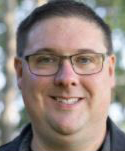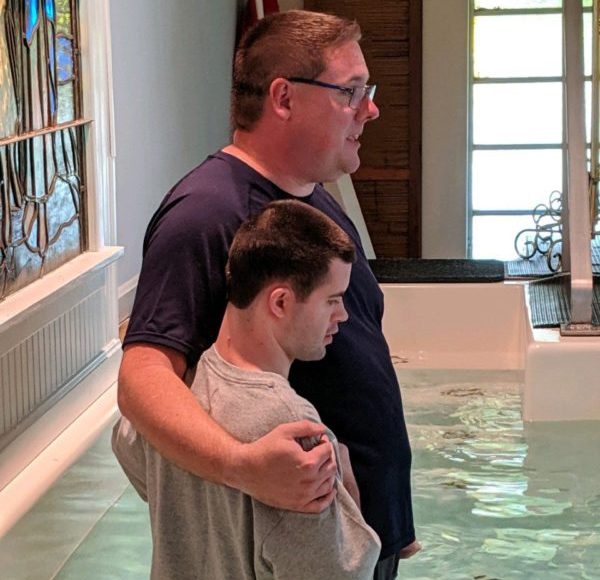
 EDITOR’S NOTE: Jim McCaffrey is pastor of Gunpowder Baptist Church in Freeland, Md.
EDITOR’S NOTE: Jim McCaffrey is pastor of Gunpowder Baptist Church in Freeland, Md.
FREELAND, Md. (BP) – In February 2017, my family and I began a new chapter in the long story that is my career. Until recently, my career path both in secular and ministry work never lasted more than two years at a place. It became the expectation that I would start a new job and then something would happen that would require me to resign or my employer would fire me. I was really tired of packing up the house that we had lived in for a short time, moving to a new place, storing the moving boxes and bubble wrap (after all, bubble wrap isn’t cheap), anticipating the next move. I did not want to uproot my family again, especially our five girls, and for them to have to make new friends and adjust to a new church and school. This had gotten old.
Shortly before arriving at Gunpowder Baptist Church, I began to wonder what in the world was going on with me and all the failed jobs, churches and relationships as well as social struggles I was encountering. As I began to research the different symptoms and experiences that I had gone through, it was the grace of God that led me to an article in Christianity Today. It was the personal story of Lamar Hardwick, a pastor in Georgia who discovered at age 36 that he was on the autism spectrum. I must have read that article 10 times, each time more intently. What Lamar wrote, to a large extent, could have been my story.
This discovery opened up a whole new world to me. I didn’t really know what autism was, but everything in the article sounded so familiar to me. After doing some thorough research (often, those on the autism spectrum have interests that they will pour themselves into, and that is exactly what I do), I shared with my wife that I thought I might be on the spectrum and that she needed to read this article.
Well, it didn’t take very long for her to realize that this was me! It all made sense to her. My very weird need to have all matching hangers in my closet as well as my clothes coordinated by color, then divided by the type of clothing. My very specific interests in things like reptiles and the history of drum companies, which I would research for hours on end, leading to very random pieces of information shared with others at odd times. And we cannot forget about my horrible inability to adapt to change, my daily routines which absolutely must take place, my very rigid and logical thinking, as well as a plethora of other strange behaviors.
The search for a diagnosis helped us understand why I have struggled to keep jobs and relationships throughout my life. After many tests, the day came to find out the results and to see if my research and assumptions were indeed correct. On Oct. 2, 2017, when I was 36 years old, my psychologist confirmed my belief: I was on the spectrum.
The search for a diagnosis helped my wife and me understand why I have struggled with keeping jobs and relationships throughout my life. In addition to the above, I struggle with social cues, impulse control, anxiety, sensory issues and more. All of these things have contributed to a lot of misunderstandings and problems and ultimately to my job losses, hurt relationships and other difficulties.
Putting a name or diagnosis to my struggles has helped me understand my strengths and weaknesses and how to adjust and plan so that I won’t continue the cycle of lost jobs and hurt relationships.
There are days that I feel that having autism is a blessing, but there are also days where it is difficult and I wish that I wasn’t on the spectrum. However, I have come to recognize that God can use an individual in awesome ways despite their struggles and difficulties. In John 9, Jesus encounters an individual who was born blind. Jesus ends up giving him sight, and much debate occurs on why the man was born blind. In verse 3, Jesus says, “It was not that this man sinned, or his parents, but that the works of God might be displayed in him.”
I have come to believe that God has allowed me to be on the spectrum to demonstrate to a watching world that God loves and uses all types of people, even those with disabilities, to show the power and glory of a great God.
Through this diagnosis, God has provided many opportunities for me to speak on disability and the church. I serve on the board of The Banquet Network, which assists churches with beginning special needs ministries. I also work with the Baptist Convention of Maryland/Delaware to broaden the convention’s disability ministry. In February 2020, I went to Puerto Rico with a team from other churches to serve at One Church Comerio and help host the island’s first “Night To Shine” prom for people with special needs.
My church has also begun to focus intently on reaching the disabled and special needs community. We even hosted the annual end-of-year party for the Baltimore County Special Olympics team. More individuals with disabilities have become integrated into our weekly youth night, and we seek to find ways to incorporate those with special needs into the life of the church, finding opportunities to use their spiritual gifts to serve God and love the members.
We are a small church with limited funds, but it really does not take much to reach out to a largely unreached group with the love of Jesus. I would encourage every church to find out how they can bless and be blessed by loving the ones that society so often marginalizes. After all, Jesus calls us in Luke 14:21 to “Go out quickly to the streets and lanes of the city, and bring in the poor and crippled and blind and lame.”
After many years of struggling to find where I “fit in,” I believe that through my diagnosis and disability, God has shown me where it is that I can best serve Him. I believe that is through disability ministry.
















